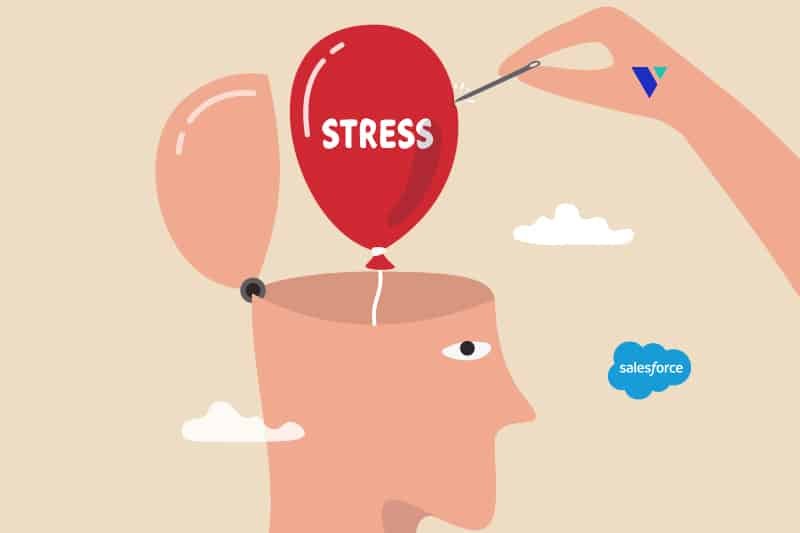Breathing Tips for Stress Management for a Calmer Mind

Modern life is full of stress, impacting individuals across various spheres. Navigating stressors, from work pressures to personal responsibilities, has become a fundamental aspect of daily living. In response to this, cultivating moments of tranquility and composure is crucial for preserving our mental and physical health. Fortunately, breathing techniques are an accessible and powerful way to handle stress.
This article aims to explore the efficacy of breathing techniques in stress management and provide actionable insights for their implementation in daily life.
Understanding Stress and Its Impact on the Mind
Pressure is a complicated physical and mental reaction to difficult circumstances. It activates the body’s “fight or flight” reaction, causing the heart to beat faster, blood pressure to rise, and awareness to sharpen. Though this reaction is crucial for surviving threatening circumstances, prolonged stress exposure can deeply impact mental well-being.
Continuous stress has been associated with various mental health problems like worry, sadness, and difficulty sleeping. Also, stress can harm thinking abilities, disturb sleep routines, and reduce the body’s ability to fight off sickness, making individuals more prone to getting sick.
Additionally, stress can negatively impact relationships, work performance, and overall quality of life. It might result in sensations of being swamped, annoyance, and exhaustion, worsening the stress pattern. Effective stress management requires recognizing stress signals.
By grasping how stress affects the mind and body, people can take preemptive actions to lessen its consequences and enhance their overall health. This involves embracing beneficial coping techniques like mindfulness, exercise, and supportive social circles to handle stress more effectively and cultivate resilience.
The Science Behind Breathing Techniques
Breathing techniques leverage the body’s natural physiological response to induce relaxation and reduce stress. These methods mainly focus on the autonomic nervous system, which oversees automatic bodily processes like heart rate, digestion, and breathing rate.
Moreover, breathing techniques have modulated brain activity, particularly in emotional regulation and stress-processing regions. Studies show that certain breathing patterns increase prefrontal cortex activity, which controls executive functions like decision-making and impulse control, and decrease amygdala activity, which processes fear and stress.
Breathing Techniques for Stress Management
Breathing techniques encompass a variety of practices that focus on controlled and intentional breathing patterns to promote relaxation and alleviate stress. These techniques are simple to learn and can be practiced anytime, anywhere, making them accessible for individuals seeking effective stress management strategies.
Each technique typically involves specific instructions for inhaling, exhaling, and sometimes holding the breath for a particular duration, creating a rhythmic pattern that induces a state of calmness.
One key benefit of breathing techniques is their ability to regulate the body’s stress response in real time. Mentally changing breathing patterns activates the parasympathetic nerve system, causing physiological changes that relax people.
These changes lower heart rate, blood pressure, and muscle tightness, promoting calm and wellness. Additionally, regular practice of breathing techniques can enhance respiratory function, improve tissue oxygenation, and increase overall resilience to stress over time.
You can consider using a breathing app like Oxa breathing coach, which is specifically designed to help users with stress management through guided breathing.
Incorporating Breathing Exercises into Daily Routine
Integrating breathing exercises into daily routines is essential for maximizing their benefits and establishing a consistent practice. Since breathing techniques are versatile and can be performed virtually anywhere, finding opportunities to incorporate them into daily activities is relatively straightforward.
One effective approach is to allocate specific times throughout the day for dedicated breathing sessions, such as upon waking up in the morning, during work breaks, or before bedtime. By setting aside dedicated time for breathing exercises, individuals can prioritize self-care and create a routine that supports their mental and emotional well-being.
Furthermore, integrating breathing exercises into daily routines can help anchor mindfulness practices and promote present-moment awareness. By consciously directing attention to the breath, individuals can cultivate a sense of mindfulness and detachment from stressful thoughts or distractions.
This mindfulness-enhancing effect extends beyond the duration of the breathing exercise, allowing individuals to carry a sense of calmness and clarity into other aspects of their day. Additionally, incorporating breathing exercises into daily routines can serve as a powerful reminder to pause, reset, and reconnect with oneself amidst the busyness of daily life.
Additional Tips for a Calmer Mind
In addition to breathing exercises, breathing can support a calmer mind and enhance stress management. For instance, mindfulness meditation entails intentionally focusing on the current moment without criticism, which can help lower stress and enhance emotional strength.
Regular physical activities like yoga or walking can significantly impact mental health by fostering relaxation, enhancing mood, and lessening anxiety. Moreover, maintaining a balanced and nutritious diet, getting adequate sleep, and prioritizing self-care are essential components of a holistic stress management and mental health approach.
Lastly, reaching out to friends, family, or mental health experts when necessary can offer priceless support and help in managing life’s difficulties. By incorporating these additional tips into daily life alongside breathing exercises, individuals can cultivate a calmer mind, improve overall well-being, and thrive in the face of stress.
Conclusion
Stress management and mental calmness can be achieved with easy breathing exercises. Understanding the science behind these techniques and incorporating them into your daily routine can reduce stress levels, improve mental well-being, and enhance your overall quality of life. Start trying out breathing practices now and see the positive transformations they can bring to your life.




